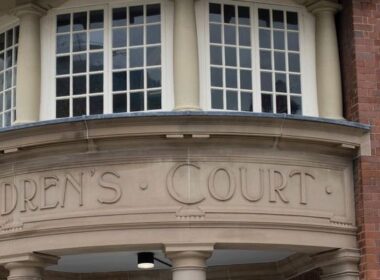Snapshot
- A United Nations body determined that Sweden and the United Kingdom violated international norms by arbitrarily detaining Julian Assange.
- For Ecuador to grant diplomatic asylum to an individual in its London embassy is controversial under international law but not unprecedented, particularly for humanitarian reasons.
- Australia has several options available to it, including providing consular assistance.
An Australian, Julian Assange, has been found to have been arbitrarily detained by Sweden and the United Kingdom (UK). On 4 December 2015, the United Nations Working Group on Arbitrary Detention (‘UN WGAD’) adopted Opinion No 54/2015 which also concluded that Mr Assange was entitled to freedom of movement and compensation. This note describes the background, considers Opinion No 54/2015 and identifies options for Australia.
Background
Mr Assange founded Wikileaks which controversially disclosed information about certain activities by the United States (‘US’). In mid-2010, a Swedish prosecutor began an investigation into allegations of sexual misconduct by Mr Assange.
In November 2010, the prosecutor requested that Mr Assange be detained in his absence on probable cause for committing these offences. The Stockholm District Court decided to detain Mr Assange in his absence. This judgment was upheld by the Svea Court of Appeal. In order to execute the detention order, the Swedish prosecutor issued an international arrest warrant as well as a European Arrest Warrant (‘EAW’).
In December 2010 Mr Assange was detained in isolation in a UK prison for 10 days. He was thereafter subject to house arrest for 550 days.
In February 2011, the City of Westminster Magistrates’ Court ruled that Mr Assange should be surrendered to Sweden under the EAW.
Section 2(2) of the Extradition Act 2003 (UK) requires an EAW to be issued by a ‘judicial authority’. This legislation gave effect to the Council of the European Union’s Framework Decision 2002/584/JHA on the European arrest warrant and surrender procedures between Member States of the European Union (‘the Framework Decision’).
In November 2011 Mr Assange appealed the extradition decision. In Assange v Swedish Prosecution Authority [2011] EWHC 2849, the High Court adjudged that, although the EAW was issued by a prosecutor, that prosecutor was a ‘judicial authority’ under the UK legislation and the Framework Decision. Dual criminality was satisfied in relation to the offences (at [70]–[103]), Mr Assange was an ‘accused’ (at [151]) and the decision to issue an EAW could not be said to be disproportionate (at [158]).
An appeal was dismissed during May 2012. In Assange v The Swedish Prosecution Authority (Rev 1) [2012] UKSC 22, a majority of the UK Supreme Court primarily reasoned that a Swedish public prosecutor fell within the meaning of ‘judicial authority’ in the Framework Decision. Lady Hale in dissent, however, concluded that the expression ‘judicial authority’ under the UK legislation was restricted to a court, tribunal, judge or magistrate (at [192]). Lord Mance similarly found that, whatever may have been the meaning of the Framework Decision under European law, the Parliamentary intention and effect of the UK legislation restricted the recognition by British courts of incoming EAWs to those issued by a judicial authority understood in the strict sense (at [266]).
In June 2012 Mr Assange requested political asylum at the London embassy of the Republic of Ecuador. He was granted asylum in August 2012. Mr Assange has since been confined to the embassy and subject to constant surveillance by UK authorities. The UK considers that using the Ecuadorean embassy premises to avoid arrest is incompatible with the Vienna Convention on Diplomatic Relations [1968] ATS 3. The UK asserts that it must extradite Mr Assange to Sweden because he is subject to an EAW and wanted for questioning in connection with allegations of serious sexual offences.
Crucially, Sweden has not formally laid any charges against Mr Assange. He has co-operated with Swedish investigators while in the UK. In July 2014 the Stockholm District Court upheld an arrest warrant for his questioning. Sweden considers that Mr Assange cannot be regarded as being deprived of his liberty due to any decision or action taken by Swedish authorities. Mr Assange has voluntarily chosen to reside at the embassy, was free to leave at any time and Swedish authorities had no control over his decision to stay there.
Mr Assange fears extradition first to Sweden and then refoulement to the US under the 1961 Convention on Extradition between the United States of America and Sweden (14 UST 1845) and its 1984 supplement (35 UST 2501). He claims to face a well-founded risk of political persecution or cruel, inhumane and degrading treatment from US authorities. His confinement at the embassy has become so disproportionate as to have become arbitrary. Indeed, he has been deprived of his liberty for more than the maximum sentence that would apply to the Swedish allegations.
In September 2014 Mr Assange filed an application with the WGAD. The WGAD consists of lawyers and academic specialists and is mandated to investigate individual cases (UN Commission on Human Rights (HRC) Resolution 1997/50, at [15]). It applies five categories of arbitrary detention. At issue was whether (i) there had been a ‘deprivation’ – and not merely a restriction – of liberty; and (ii) that deprivation was ‘arbitrary’. On the first question, the distinction is ‘a matter of degree or intensity, but not one of nature or substance’ (European Court of Human Rights, Guzzardi v Italy [1980] Application No 7367/76, at [92]).
The WGAD decision
The WGAD concluded that the deprivation of liberty of Mr Assange was arbitrary and contrary to certain articles of the Universal Declaration of Human Rights (‘UDHR’) and the International Covenant on Civil and Political Rights [1980] ATS No 23 (Opinion, ohchr.org/Documents/Issues/Detention/A.HRC.WGAD.2015.docx, at [99]). The circumstances fell within category III: when the total or partial non-observance of international norms relating to the right to a fair trial (established in the UDHR and relevant international instruments) is of such gravity as to give the deprivation of liberty an arbitrary character.
Mr Assange had been subjected to a continuous deprivation of his liberty, albeit in different forms: first isolated detention in Wandsworth prison, house arrest and then confinement at the embassy (at [85]-[88]). He had not been guaranteed the international norms of due process and the guarantees to a fair trial at these times.
Mr Assange’s confinement in the embassy was an arbitrary deprivation of his liberty because:
- he was denied the opportunity to defend himself against criminal allegations by providing statements and accessing exculpatory evidence;
- the length of his detention was incompatible with the presumption of innocence;
- he was subject to highly intrusive surveillance and detention of an indefinite nature without an effective judicial remedy;
- Mr Assange’s health was at risk and the embassy lacked appropriate medical facilities;
- legislative amendments made by the UK after the Supreme Court judgment – to address a court’s inability to conduct a proportionality assessment of the Swedish prosecutor’s international arrest warrant and to bar extradition if no decision to bring a person to trial had been made – were not retrospective (at [98]).
Furthermore, Sweden and the UK had substantially failed to exercise due diligence in their criminal administration (at [97]). They were requested to ensure Mr Assange’s safety and physical integrity, expediently facilitate the exercise of his right to freedom of movement, ensure the full enjoyment of his human rights and bring detention to an end (at [100]).
WGAD member Tochilovsky issued an individual dissenting opinion stating that the WGAD’s mandate was not without limits. It was not competent to consider situations that did not involve the deprivation of liberty or issues relating to a fugitives’ self-confinement including asylum and extradition (at [1], [5]).
The Australian member of the WGAD recused herself. What ought Australia do?
Options for Australia
Foreign Minister Bishop has requested legal advice on the implications of the Opinion. That advice will likely include the view that the WGAD can only issue non-binding ‘opinions’ which States need only consider. States are requested ‘to take account of the Working Group’s views and, where necessary, to take appropriate steps to remedy the situation of persons arbitrarily deprived of their liberty, and to inform the Working Group of the steps they have taken’ (HRC Resolution 20/16, at [3]). All States are encouraged ‘to give due consideration’ to the WGAD’s recommendations (at [6]).
The result was not entirely unexpected. The WGAD has previously indicated that ‘arbitrary’ required the elimination, in all its forms, of arbitrariness, whatever the phase of deprivation of liberty concerned (WGAD, Deliberation No 9 concerning the definition and scope of arbitrary deprivation of liberty under customary international law, UN Doc A/HRC/22/44 (2012), at [56]). Putting individuals in temporary custody in any facilities where they remained under constant surveillance could restrict personal freedom of movement and constitute a de facto deprivation of liberty (at [59]). A particular form of deprivation of liberty must be taken in accordance with the applicable law and procedure, and be proportional to the aim sought as well as both reasonable and necessary (at [61]).
Mr Assange’s circumstances raise broader questions, particularly the legal options available to the UK (which exercises territorial sovereignty), to secure physical custody of an individual located in a foreign embassy. Embassy premises are protected by the principle of diplomatic inviolability to ensure the unhindered exercise of consular functions.
The grant of diplomatic asylum in an embassy is not strictly permitted under international law but is tolerated for exceptional cases. States generally retain the option so as to provide temporary refuge to individuals (particularly political offenders) in an effort to protect them from acute situations of violence. Indeed, Australia instigated a UN study of the humanitarian aspects of diplomatic asylum in 1974. But the practice is not without controversy, even if Latin American countries are relatively more receptive to it.
Mr Assange has called on Australia to take positive steps to negotiate a resolution, including releasing his passport or issuing him with a new one. But Australia has been demonstrably restrained. It has offered consular assistance should Mr Assange require it. Article 36 of the Vienna Convention on Consular Relations [1973] ATS 7 provides that our consular officials:
- are free to communicate with Australians and have access to them; and
- have the right to visit Australians who are in detention, to converse and correspond with them, and arrange legal representation.
Australia has also declared that, if Mr Assange was extradited to the US, assurances of due process would be sought.
The increasing prominence given to an individual’s interests, including the prohibition on refoulement to places where human rights violations might occur, further complicates diplomatic relations. Australia has the option of exercising its right of diplomatic protection – to take up Mr Assange’s claims and assert his rights against another State, but that prospect is a matter for the Australian Government. Mr Assange might then assert that Australia was obliged to consider an application from him that a request be made to the UK to deliver him to Australian authorities (see Hicks v Ruddock [2007] FCA 299).
Many precedents suggest that diplomatic asylum occasions protracted stays. Individuals are either recaptured or granted safe conduct out of a country. The underlying challenge is to identify a solution that satisfies all rights and interests.


 Stephen Tully is a barrister at 6 St James Hall Chambers.
Stephen Tully is a barrister at 6 St James Hall Chambers.

